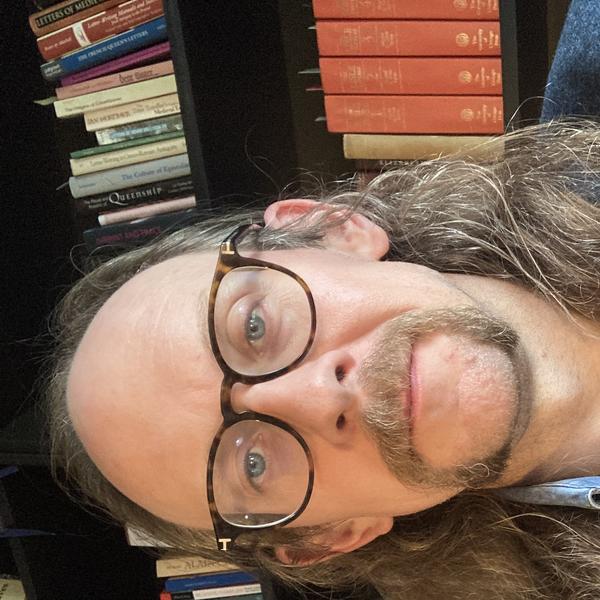Dr Graham Williams
School of English
Senior Lecturer in the History of English


+44 114 222 8460
Full contact details
School of English
Jessop West
1 Upper Hanover Street
Sheffield
S3 7RA
- Profile
-
Originally from the climes of Upstate New York, Sheffield has been home since joining the School of English as Lecturer in the History of English in 2012. Prior to coming to England, I completed my PhD under Professor Jeremy J. Smith and Dr. Alison Wiggins at University of Glasgow.
- Research interests
-
Broadly speaking, I work on medieval and early modern Englishes, but I am also interested in Anglo-Norman, Scots, Old Norse and Latin, and how these languages have impacted on the history of English language and literature. More particularly, my perspective tends to be of a pragmatic or stylistic bent, and most recently I have been exploring how these areas interact with the history of emotions. I maintain an especial interest in historical letters, but my research deals with texts of all types, from Old English homilies to late medieval verse.
I also have strong research interests in manuscript studies, paleography, digital editing and corpora - in particular, the implications these perspectives have for the historical study of English.
- Publications
-
Books
- . London: Palgrave Macmillan.
- . John Benjamins Publishing Company.
Edited books
- Cultures of Compunction in the Medieval World..
Journal articles
- . Multilingua, 39(1), 1-9.
- . Multilingua, 39(1), 11-31.
- . Journal of Historical Pragmatics, 18(2), 175-194.
- . Huntington Library Quarterly, 79(3), 387-409.
- Written like a 'gwd' Scotswoman: Margaret Tudor's use of Scots. Scottish Language, 35.
- . Language, 90(4), 961-963.
- . English Studies, 93(7), 809-832.
- 'Searching for verbal irony in historical corpora (?): a pilot study of mock and scorn in the Corpus of Middle English Prose and Verse'. Studies in Variation, Contacts and Change in English, Proceedings of the Helsinki Corpus Festival Pre-conference Event.
- , 169-193.
- . The Review of English Studies, 65(271), 596-618.
Book chapters
- (pp. 227-242). Wiley
- "yr Scribe Can proove no nessecarye Consiquence for you"?: The Social and Linguistic Implications of Joan Thynne's Using a Scribe in Letters to Her Son, 1607-1610" In Hardman P & Lawrence-Mathers A (Ed.), Women and Writing, C.1340-c.1650: The Domestication of Prin Culture (pp. 131-145). Boydell and Brewer
- Lo! Exclamative Punctuation in Middle English Manuscripts In Kopacyzk J (Ed.), Philology Reimagined: English in Transmission
- Pragmatics of Punctuation in the Paston Letters In Faulkner M & Lennard J (Ed.), A History of Punctuation in English Literature
Digital content
- Bess of Hardwick's Letters: The Complete Correspondence.
- Research group
-
I would be happy to supervise students with an interest in any area of my research expertise.
- Teaching activities
-
I convene and/or contribute teaching to the following modules:
- ELL114 - History of English (convener)
- ELL118 - Early Englishes
- LIT108 - Studying Poetry
- ELL236 - Introduction to Middle English (convener)
- ELL360 - Historical Pragmatics (convener)
- ELL364 - Constructed Languages
I also teach historical linguistics options on the MA in English Language and Linguistics
- Professional activities and memberships
-
I am strongly committed to sharing experience and expertise with the wider public and have featured as a speaker on BBC Radio Scotland, and worked with National Trust volunteers at Hardwick Hall as part of my role in the AHRC Letters of Bess of Hardwick Project. I have also spoken about areas of my research at public events such as Sheffield's annual Festival of the Mind.
